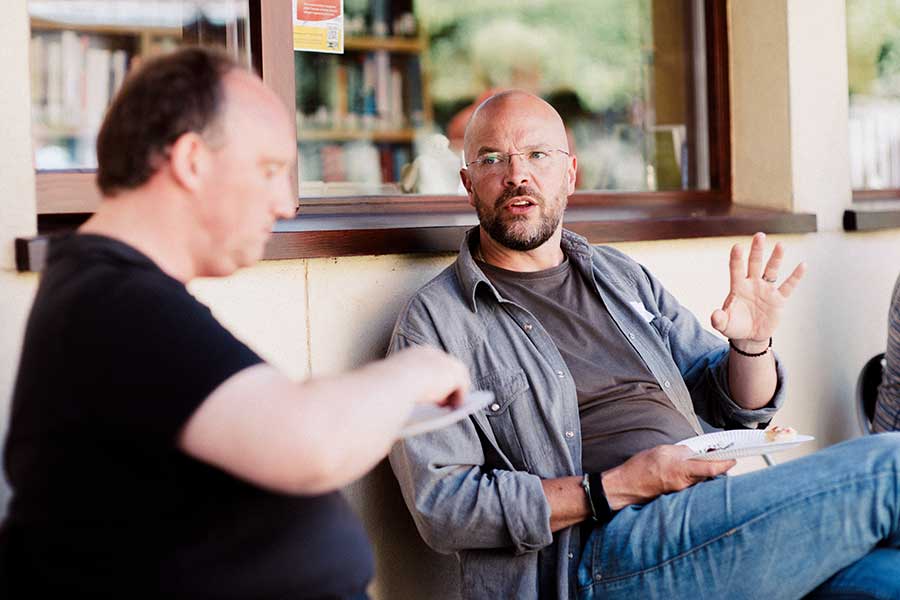
After months or even years of preparation and hard work, you’ve arrived at one of the most important and life-changing parts of the discernment process: the Stage 2 selection panel.
‘After a lot of prayer and talking to my local vicar, I felt a real prompting towards ordained ministry.’
Watch our video and hear from Carly Taylor, a former nurse and current ordinand at St Augustine’s College of Theology, about her inspiring journey to ordained ministry.
Learn why former nurse Carly Taylor changed her career and entered a new chapter – ordination training with St Augustine’s College of Theology.
What happens at the Stage 2 selection panel?
Stage 2 is an intensive, mostly residential process that lasts two days and one night (but is sometimes non-residential). You’ll be interviewed in person by two people from the Church of England: one of the Bishop’s Examining Chaplains and your Area Bishop, also known as the Bishop’s Advisory Panel.
Day one usually involves lots of short interviews. These are not formal ‘job interview style’ questions but more detailed conversations where you talk about your discernment journey and the portfolio prepared by your Diocesan Director of Ordinands (DDO).
The panel will ask questions that explore the qualities you need for ordination, and you’ll need to demonstrate leadership, personality and suitability in these areas:
- Love for God
- Call to Ministry
- Love for people
- Wisdom
- Fruitfulness
- Potential
They’ll want to see how your understanding of these qualities fits within the framework of the Church and how your answers connect to Christ, the world, the Church and yourself.
Working in a group
In addition to the interviews, you’ll take part in a group exercise, usually based on a ministry-related scenario. The panel will watch how you interact with others, show leadership and handle challenges. You’ll also complete a short written task.
Plus, you must write a 500-word personal reflection where you share an experience from your discernment journey that shows your readiness and personal development.
Prepare for intense emotions
Stage 2 selection can be emotionally intense, and feeling overwhelmed is normal. You’ve likely invested years of discernment and preparation into this process, and the experience can leave you feeling vulnerable.
The Stage 2 process signifies a dramatic life change for some people. You may be switching from a successful career; for others, ordination could have been a lifelong calling deeply tied to their identity.
What happens after the panel?
You’ve been recommended for ordination training
If the panel recommends you for ordination training, they will send their report to your bishop. The bishop makes the final decision, often following the panel’s advice. You may receive unconditional approval to begin training, or you may need to fulfil certain conditions first, such as completing extra study or a placement in your community.
Once recommended, you can apply to theological colleges, like St Augustine’s College of Theology.
You’re not ready yet, but don’t be discouraged
Raymond Baudon from Southwark Diocese explains, ‘If someone isn’t recommended for ordination training, their identity often feels shaken.’
Rejection can be painful, and you may question, ‘Is this how God sees me?’ However, it’s important to remember that such decisions are not the end of the road.
If the panel thinks you’re not ready, the bishop will explain why and suggest ideas for further development. The decision may feel like a setback, but it’s rarely a definitive ‘no.’ Instead, it’s a chance to try other ways to deepen your spiritual practice or consider alternative paths within the Church.
Book a FREE taster event to learn more about ordination training
Want to learn more about ordination training? Our free taster events are perfect for you.
Book a free taster event, and you can:
- Meet our inspiring lecturers
- Sample real classes
- Chat with current students
- Get a real feel for life at St Augustine’s College of Theology
Another big thanks to Raymond Baudon from Southwark Diocese for his help with our ordination training blog series.

